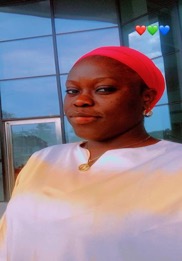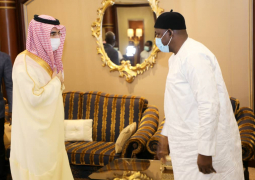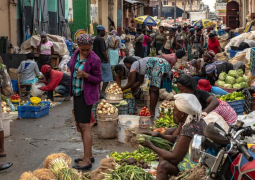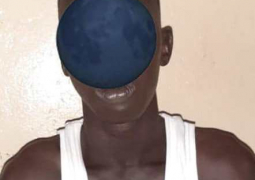
Aisha Tamba, a female reporter at the Standard Newspaper says: “I think it's very important to be vaccinated, considering my job as a journalist. I very much interact with people and as a result of that, I needed to be safe to do my job effectively.”
"I was reporting on the daily Covid-19 situational updates from the Ministry of Health, on my media outlet [The Standard Newspaper]. Also I did radio sensitisation with the Network of Journalists on Disaster Risk Reduction in the Gambia chapter. I think it's important for the public to know the pandemic and how to adhere to the rules and regulations. “
Giving advice to her fellow female journalist colleagues, Ms. Tamba said: “It is important to protect yourself, your family and also your colleagues. My advice to my fellow female journalists is, go get your jab, it's never too late to be vaccinated,’” she concluded.
Ndey Sowe, also a reporter at Foroyaa newspaper said: "As a female journalist and a frontliner, I deemed it very necessary to take the vaccine because I believe Covid-19 vaccines are very safe and protect people who have Covid-19.”
She added that people are protected most when they stay up to date with the recommended number of doses. She said Covid-19 vaccine is a safe and more reliable way to build protection as recommended by health experts.
According to her, the vaccine is advantageous because it helps protect the person by creating an antibody response.
On her endeavours to disseminate information about the pandemic to the general public and her fellow female colleagues, she said: “At my office I was the one reporting on the daily COVID-19 cases organised by the Ministry of Health on press briefings. The number of new cases, quarantine, recovery cases and overall the number of confirmed cases to the general public.”
“I make sure I give out accurate information about COVID-19 cases confirmed by the Ministry of health and also do more advocacy on the safety guidelines outlined by WHO and Ministry of Health."
She reiterated that safe and effective vaccines are available that provide strong protection against COVID 19.
Olimatou Coker said: “As female journalist who has already taken the vaccine, it has a great impact on me but most especially at my work place."
"I also served as a front line worker from the initial stage when my office announced that everyone should take the jab and even went to the extent of inviting health practitioners from the MoH to see that everyone takes the jab.
She further said: “At first I was worried about taking the vaccine but I later sat and came to realise that it is for my own safety and for others around me. In that regard, I got the courage to go for it and that has really helped me recently during my trip to Nigeria.”
“At some point I felt like I had covid but after taking the jab, I felt relieved despite the fact that there were so many misconceptions about these vaccinations that I was so scared of taking from the initial stage of the pandemic.”
She also urged her fellow female journalists to shy away from the misconceptions attached to the vaccines and pay maximum attention to preventing themselves and others living around them.
According to Gibril Gando Baldeh, a senior health officer, directorate of Health Promotion and Education under the Ministry of Health, the vaccine has proved its effectiveness as it has reduced the number of hospitalisations and deaths.
Consequently, he urged people to get vaccinated, noting that the vaccination is recommended by the World Health Organisation (WHO) that people should embrace the vaccines.
THis story was produced with support from Journalists for Human Rights (JHR), through its Mobilizing Media in the Fight Against COVID-19 in partnership with Kaba Communication and The Point.





